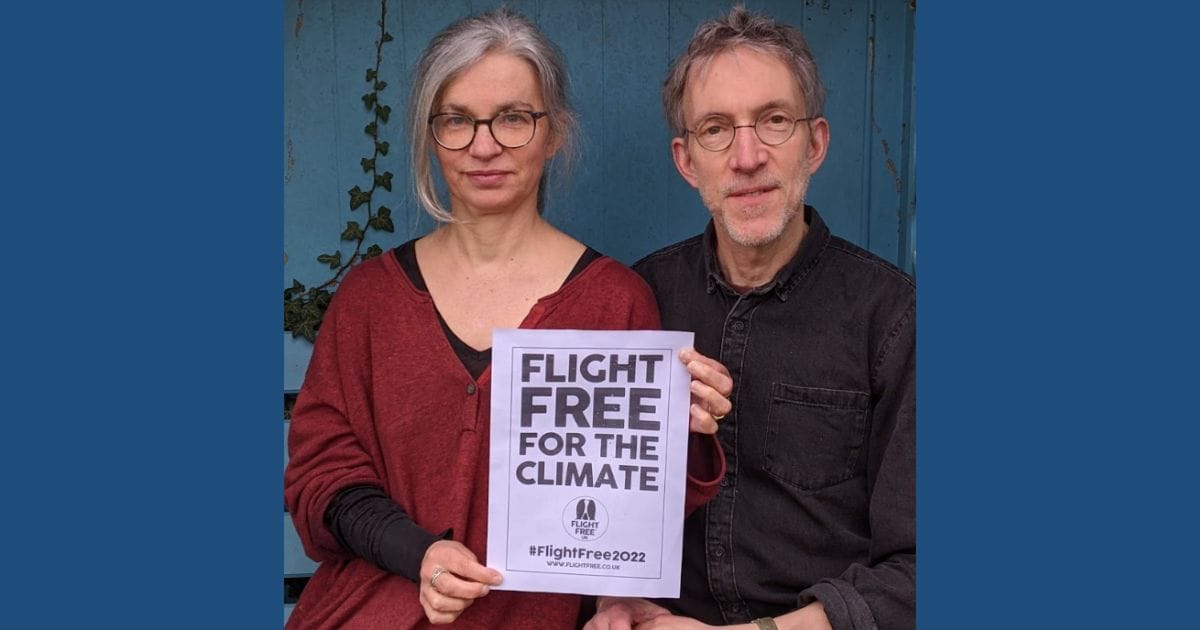We all know the power of education.
Our schools have immense potential to raise responsible, caring, knowledgeable adults who will go on to shape the society of the future.
It is during the school years that personalities emerge, characters are developed, and ideologies form that will guide pupils for the rest of their lives.
Within our education system there is huge potential to instil in children the urgency of the climate crisis, and explore its solutions. So why are we still taking school trips by air?
Being taught about renewable energy in science, extreme weather impacts in geography, and the effect of the climate crisis upon humans and the natural world in PSHE is all very well, but so often, these lessons end at the classroom door. Beyond turning off the lights, there’s no sense of the action we need to take, or of the difficult reality that everything about the way we live is going to have to change. Perhaps schools are missing the biggest lesson of all: leading by example.
Perhaps schools are missing the biggest lesson of all: leading by example.
You see, the problem with school trips by air is not just the emissions, though that is important – a school-age pupil doesn’t typically have a huge personal carbon footprint, but this soon changes as soon as you put them on a flight. No, the main problem is in the normalisation of flying. When we put our children on planes, we teach them that flying is normal. The behaviours we learn in our childhood are likely to shape the people we become. By promoting flying at an early age we are creating a generation of people who fly.
When we put our children on planes, we teach them that flying is normal.
When we teach our children about the impacts of climate change, then encourage high-carbon behaviours such as flying, we create a disconnect between the reality of the climate crisis and the reality of what it will take to address it. We are delaying meaningful climate action by another generation.
There is no doubt that school trips offer a rich, unforgettable experience, and add great value to our school years. This is the perfect age to experience other cultures, to learn about tolerance, to open eyes and minds to the world beyond the school gates. It’s also a great opportunity to pick up some practical tools of how to travel, and to nurture independence and curiosity.
Travel teaches us about the world and our place in it. But does air travel do that?
Yet all this can be achieved without getting on a plane. We are so lucky with Europe – all of the educational experiences that we’re looking for are right here on our doorstep, available by train, coach, and boat: transport options that are much more compatible with our climate situation.
Travel is a wonderful gift that teaches us about the world and our place in it. But does air travel do that? Or are we just learning how to fly?
***
If you know of a school that offers trips by air and want to help buck the trend, we recommend writing a letter to the school. The more that climate concerns are raised, the more likely it is that future policy might change to reflect the reality of the climate crisis. Be polite and factual, but also include your personal motivations and feelings.
Here is an example letter, written by our Director to a family member's school.
Dear Mr X.
I’m writing about the upcoming music department trip to New York, to highlight some issues that I hope the school will consider when organising future school trips.
Teachers have a duty of care to their pupils, not just on a day-to-day basis, but with their future development and prosperity. One of the main challenges facing our children today is climate breakdown. I’m sure that many of your pupils are concerned about the environment, and some of them might even have attended school climate strikes.
It is at odds with this awareness to be travelling by air for school trips.
The first and most obvious problem is the climate impact. A return flight to New York emits approximately 1.5 tonnes of CO2 per passenger. This is about the same as what the average driver would produce driving every day for ten months. There are 71 countries in the world whose citizens emit less than 1.5 tonnes CO2 over the course of a year. Here in the west, our carbon footprints are astronomical, and nothing bumps them up so quickly and by so much as taking a flight.
Pupils are taught to recycle and to care for our planet, yet taking school trips by air shows that there’s a disconnect between what pupils are taught and the actions they are encouraged to take. The impact of flights dwarfs the savings you might make through recycling or switching to low energy lightbulbs.
The second problem is that flying for a school trip normalises flying. We know that the experiences of our teenagers in these formative years will shape the course of the rest of their lives. Normalising flying at this early stage goes a long way to perpetuating our high carbon society at a time when we need to be drastically cutting our emissions.
There is also the issue of fairness. I could speak about the global injustice of climate change, in which people across the world who have done least to cause the climate crisis are suffering the most. People are already dying because of the climate crisis, and it’s hard to justify taking leisure flights in that context.
But there are injustices on a local scale, too. Not everyone can afford a trip to New York. Offering trips that are accessible to everyone is much fairer, and demonstrates the kind of society we would like to build.
There is no doubt that school trips are terrific learning experiences. They are opportunities to develop relationships with friends, to see other cultures and to learn new things. However, none of these things is dependent on a flight. For a music and drama trip, would you not consider somewhere closer to home?
At this crucial time, it is incumbent upon us to do everything we can to address the climate crisis. This applies to our work in and out of the classroom. I would argue that the payoff of high carbon trips such as this one is simply not worth it, and creates problems for future generations.
When we put our children on planes, the only thing it teaches them is that flying is normal. It’s not.




